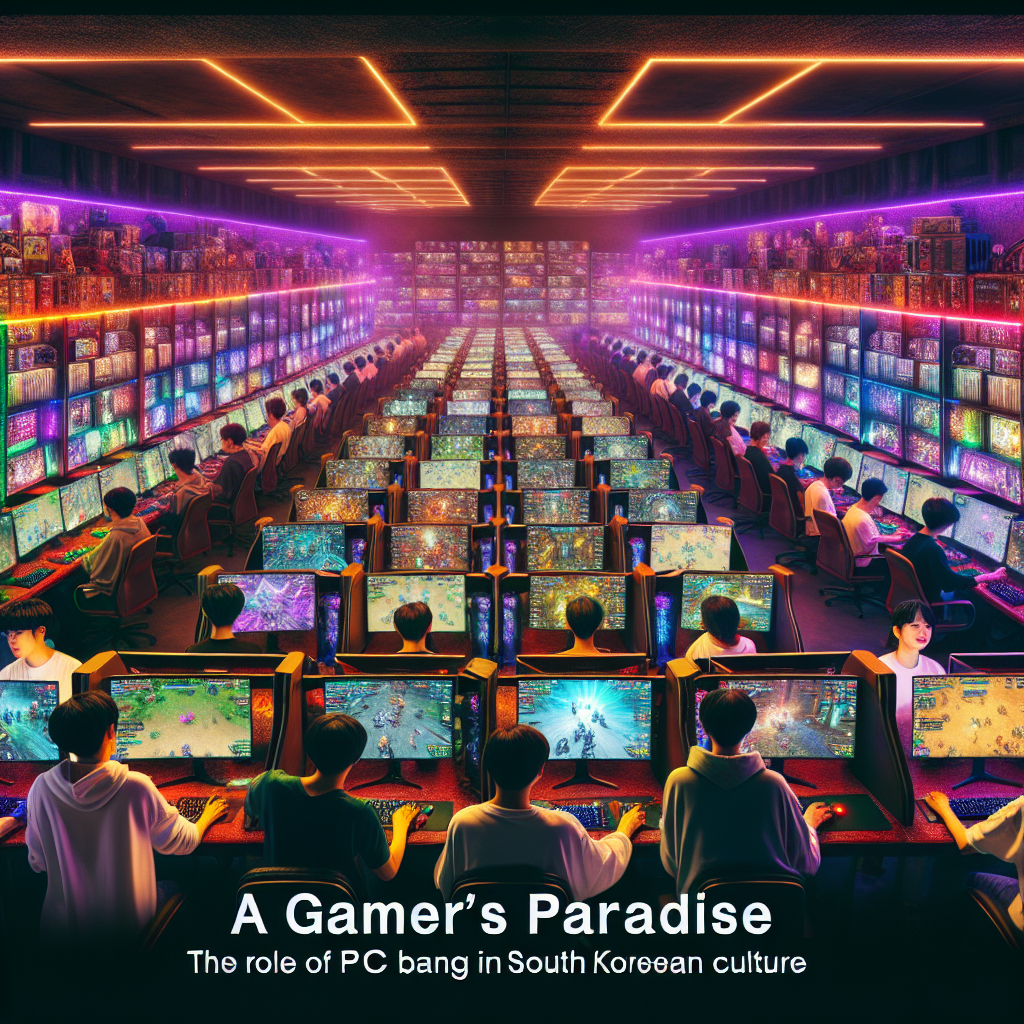A Gamer’s Paradise: The Role of PC Bangs in South Korean Culture
In South Korea, gaming is more than just a pastime; it is a cultural phenomenon that has shaped social interactions, entertainment, and even economic landscapes. At the heart of this phenomenon are PC bangs—popular internet cafes that offer gamers a dedicated space to indulge in their favorite hobby. For many South Koreans, PC bangs are not just venues for playing video games; they are social hubs that play a vital role in the country’s modern culture.
The Rise of PC Bangs
The concept of PC bangs emerged in the late 1990s amid the rise of the internet and online gaming. As broadband technology became widely accessible, so too did the opportunity for gamers to connect and compete in a shared environment. Established as spaces where anyone could rent high-performance computers equipped with the latest games, PC bangs quickly gained popularity, particularly among the youth.
The growth of PC bangs coincided with the rise of esports, with games like "StarCraft" becoming national obsessions. South Korea became a global leader in professional gaming, and PC bangs served as the breeding grounds for aspiring esports athletes. Today, countless PC bangs can be found throughout the country, from bustling cities to quieter towns, each offering unique gaming experiences and communities.
A Social Gathering Place
What sets PC bangs apart from traditional gaming at home is the communal aspect they provide. These establishments foster a sense of belonging and camaraderie among gamers. Friends often gather at PC bangs after school or work, enjoying the shared experience of gaming while also engaging in conversation, snacks, and sometimes even drinks.
The atmosphere in PC bangs varies, from lively and competitive to relaxed and casual. Some patrons come for intense gaming sessions, while others prefer to chat or watch their friends play. The variety of atmospheres caters to different gaming subcultures, enabling gamers from all walks of life to find their niche.
PC bangs also play host to local gaming competitions and tournaments that allow players to showcase their skills and earn recognition within their communities. Such events not only nurture talent but also promote a sense of healthy competition, driving gamers to improve and innovate.
Amenities and Culture
PC bangs are more than just rooms filled with computers; they often offer a range of amenities that enhance the overall experience. Typically, they provide high-speed internet, comfortable gaming chairs, and a wide selection of games—both local and international titles. Many also serve an assortment of snacks and beverages, providing an enjoyable environment to refuel during long gaming sessions.
The culture within PC bangs goes beyond just gaming; they are often decorated with gaming paraphernalia and may showcase memorabilia of popular titles or professional players. The sound of keyboard clicks, tense gaming commentary, and cheer from victories create an exhilarating backdrop that immerses patrons in the gaming experience.
Furthermore, the accessibility of PC bangs plays a significant role in the democratization of gaming. Not everyone has the financial means to invest in a high-end gaming rig at home, but PC bangs provide a cost-effective option that allows anyone to participate in the gaming culture.
Challenges and Criticism
Despite their popularity, PC bangs have faced criticism for contributing to gaming addiction and unhealthy lifestyles. The allure of continuous gaming in a social setting can lead some individuals to spend excessive hours in these establishments, raising concerns about the impact on physical and mental health. The South Korean government has implemented measures to address these issues, including regulating operating hours and promoting awareness about responsible gaming.
Additionally, some argue that the rise of mobile gaming has posed a threat to the traditional PC bang model, leading to a decline in foot traffic and revenue. However, many PC bangs have adapted by offering newer games and experiences, such as virtual reality gaming and enhanced esports events, seeking to attract both old and new generations of gamers.
Conclusion
PC bangs occupy a unique place in South Korean culture, serving as essential venues for social interaction, competitive gaming, and cultural exchange. They have significantly contributed to shaping the nation’s gaming landscape and maintaining its status as a global esports powerhouse. While they face challenges in the evolving gaming environment, the role of PC bangs in fostering community and shared experiences ensures their continued significance in the ever-growing universe of gaming. For many South Koreans, the PC bang is indeed a paradise where passion, friendship, and competition merge into an extraordinary cultural phenomenon.




